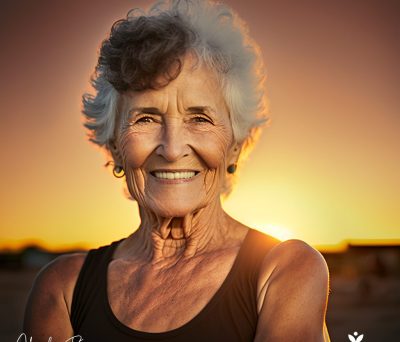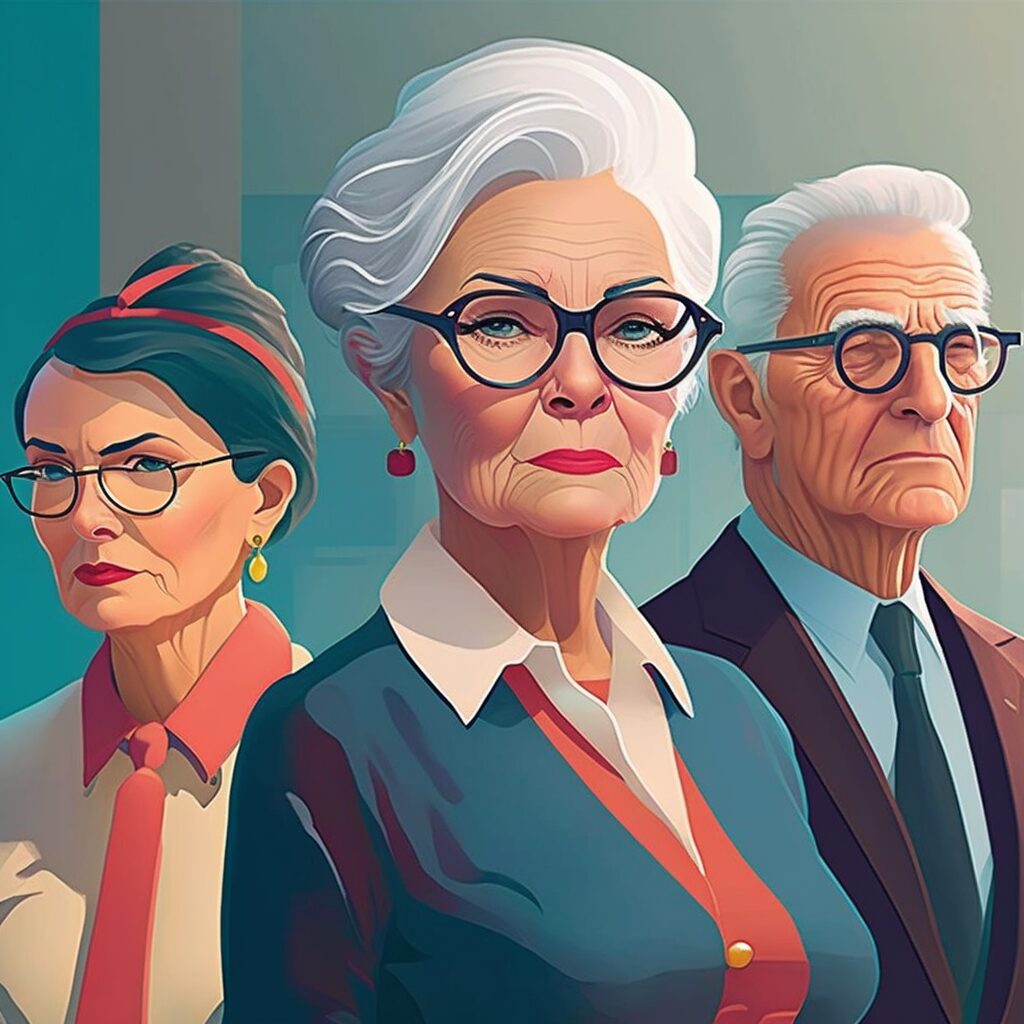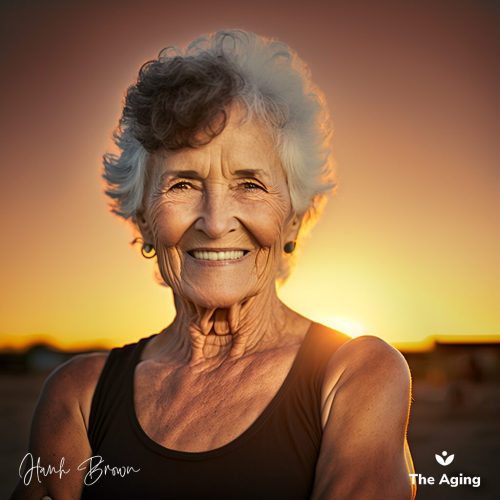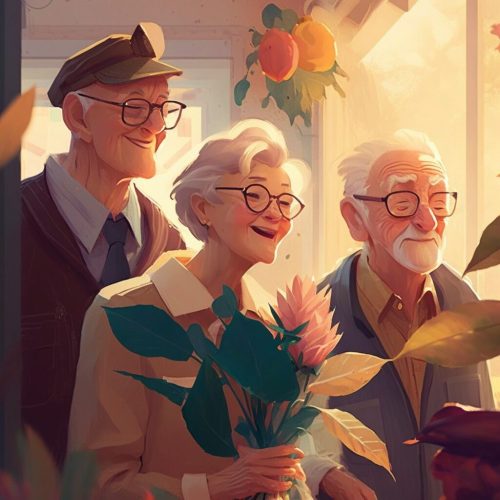Hanh:
1:24
Hi, I'm Hanh Brown, host of the Boomer Living Broadcast.On this industry leaders share information.Inspiration and advice for those who care for seniors, our expert panelists,discussing your health care dementia caregiving technology for seniors in affordable, senior living options.All of which address the social determinants of health.So, thank you so much for participating in today's conversation.Check out our Carestream, a recently launched platform where we match seniors with caregivers and guide businesses and their employees to the caregiving journey for their loved ones.So please check out Carestream.And for those of you in the audience, we love to hear from you.So comment below if you have any questions and we're glad that your here.So today's topic is senior housing.Is it a lifestyle or medical necessity with the aging of the baby boomers?Senior housing has become a hot topic.Many people are concerned about how they will pay for their parents care.We'll also saving money and planning for retirement.So there is no easy answer to this question, but we can discuss what's happening in senior housing, the pandemic effects and occupancy, healthcare related costs and staffing, and many of the major issues facing seniors today.So senior housing is a rapidly growing industry.The number of seniors in the United States is expected to double by2030, reaching an estimated 70million people over the age of 65.But with this growth comes challenges for senior living providers and the residents, including rising healthcare costs, staffing, shortages, and much more.So joining me today in conversation is Calvin Schnure.He's the senior vice president research and economic analysis at Navarrete in his role, Calvin analyzes developments in the macro economy and their impact on rates in commercial property markets and on financial returns through rates.He also monitors performance of mortgage rates and conditions in the U S mortgage market.Calvin also conducts original research on reach stock market returns and economic fundamentals.So Calvin welcome to the show.
Calvin:
3:43
Good morning.And thanks for having me back again.
Hanh:
3:45
Yeah.Thank you.How are you?
Calvin:
3:48
Doing all right.Happy New Year, a little bit late, but still Happy New Year.
Hanh:
3:51
Yeah.Well, welcome back and thank you for this opportunity for take two.Yeah.So in addition to your professional, Could you share with us something on a personal side?
Calvin:
4:06
Sure.So I, as you mentioned, I'm senior economist and we represent commercial real estate, reads it on commercial real estate.And I analyze the overall economy as an economist, but then I look at conditions in all types of commercial real estate markets, which are office buildings, malls, shopping centers,apartments, but also senior housing.REITs are some of the significant investors and operators in senior housing.So I'll be talking about that.I'm also going to be a bit basing some of my comments on research that I've done on the development of senior housing over the past 30 years, but I'll also have to reflect on what I've seen with my family.My parents moved into a senior living community when they were in the late seventies.My father died over10 years ago of dementia.And was able to go from independent,living into a nursing unit.They did not have memory care in their place, but it meant that they didn't have to move.They didn't have to be in completely different locations.It was much easier transition dealing with my father's decline.My mother fortunately is still alive.98 years old.She lives outside of Pittsburgh where I grew up.And I've seen an awful lot about the community, where she lives in the services that she gets in that community.And that it's actually really informed a lot of my research and analysis that I do professionally.
Hanh:
5:26
Thank you.Thank you so much for bringing your wisdom professionally and personally to this conversation.So, in terms of the economy,commercial real estate and REITs in2022, so which pandemic changes are temporary and which are permanent?
Calvin:
5:44
Yeah, that's been a really,the important issue that a lot of people didn't understand.It was hard to tell.We look back to where we were almost two years ago.It was hard to tell just where we're regard.Cause it's unprecedented.And, as you and I discussed before we sat down in front of the cameras, a lot of the changes, if you separate them between the permanent and the temporary, you have a bit better understanding of what's going on.So what happened very early in the crisis was many things were shut down completely, and we didn't know how long it was going to last.And in terms of real estate, there were some sectors were hit very hard.The malls were closed,shopping centers were closed.And so the stores were not having any sales at all.And they weren't making their lease payments to the property owners.That caused a real concern in the market of are they going to survive or are they going to get through it all?We've seen similar things in the office market work from home.It has become a lifeline for a lot of businesses and employees that did not want to take the health risks of everyone being in person.But then also means, that many office buildings, maybe some of the tenants would not really renew their leases.Is this permanent or is it temporary?We see a similar thing in senior housing.I'm talking a little bit more later on as we get on, but in terms of occupancy and, and what it's meant for the overall business, there's some very large short-term impacts that are not going to stick around, but there's some others that probably will, but, but in terms of the overall economy and real estate market, I think we are all,pleasantly surprised that despite the terrible loss of the health issue, the death and all of the prompts of the crisis, we've learned to adapt how we live without raising our risks to the pandemic.So I mentioned working from home,people use e-commerce people have changed the way they live.People change the way they work.You will change the way they shop in ways that we can, we can, we can get through our, our, I don't want to say our normal lives.We can get through our daily lives without.Being the way it had been before all of those impacts affect commercial real estate, because most of our economic activity, most of our entertainment activity, most of our living activity takes place in a commercial structure.And if you own your home, then that's the private, private structure.Most, everything else is commercial.And it is just talking about the difference between the temporary and the permanent.Now the overall economy, was weak and stock market fell quite a bit.We saw in the early months of the pandemic, I think people who were relying on a 401k for their retirement, what were quite large,how am I possibly going to live?If this is a permanent change,fortunately as the economy adapted and you realize that businesses and property owners and everyone else would have a work around the stock market came back.What happened in 2020 is the overall stock market ended up being up almost 20%.But REITs reads that are publicly listed way of investing in commercial real estate.They were still down 5% for the year because people were concerned that the impact on commercial real estate, you know, I mentioned senior house, but also shopping centers and so on would be permanent.Well, what happened over the past year in 2021 was the REITs showed that they resilient that some of the biggest fears that people had about the impact of, of the pandemic.Prudery temporary, REITS rose 41% last year.Well above the rest of the market, these came back saying that some of these things we really worried about you were getting through and we see a bright future.I mentioned the, the malls,most stocks, they almost doubled last year because people realized we still like to go to the mall.We still like to do many of the things that we had done before the pandemic.These also affect senior living.The immediate impact has been the industry is really caught in some pincers.The occupancy rates are down.Occupancy rates were normally 90, 95%.You know, you have a 5%, 6% vacancy,something occupancy rates fell below 80%.Some of them below 75%.And it's, it's understandable.When I talk about senior housing, I include independent living and assisted living, but also skilled nursing and unfortunately skilled nursing or some of the years that were really devastated early on in the crisis, the health issues.And, you know, it was difficult to move into a facility in the middle of a health crisis, those affecting those facilities.So they've been very hard hit,but again, it wasn't just the skilled nursing, the assisted living and the independent living also saw really large decline in occupancy.Now getting I'm getting ahead of myself a little bit, but we see those recovering pretty quickly, but they still have a long way to go.So on the one hand, if you only have four out of five units occupied20% vacancy, your revenues are waking up and their costs are up.Every senior housing operators, trying to make sure that the residents are safe.So whether that's putting in the cleaning,the personal protection, all of the issues that they're doing to try the safeguard the population that adds to cost.So it's a, it's a real problem for the industry of saying, well, your revenues are down and your costs are up, but you need to provide these.What do you do?Now just to reflect back on what I was saying at the beginning, the good news is that most of these problems are temporary.
Hanh:
11:30
Yeah.
Calvin:
11:31
The industry showing the 2021 particularly, second half of 2021 was a year of recovery.And I expect to see more recovery in the year ahead as we get through the current wave of the Omnicon variant of COVID and, you know, we all hope by springtime getting back towards a more comfortable,less worrisome daily routine.
Hanh:
11:53
Absolutely.We can do a deeper dive with a senior living, all the important components that you described.So, so what are your thoughts on the aging population in the U S and what does this mean for the traditional housing market?
Calvin:
12:12
What we've seen over the past 30 plus years is a real change in the model of how seniors live.I think if we, if we look at the Norman Rockwell picture, you see mom and dad and they're cooking in the kitchen.Dad has come home with a suit on the kid is by the fire and the dog is there.And there's the grandparent of the rocking chair sitting, watching this all go on.And that, that looks, that looks idyllic.The reality for many families is, if both parents work,not at home during the day to care for the aging parent.If both parents work and they moved from Pittsburgh to Washington, DC, they're not even in the same city as their parents.Meanwhile, we're fortunate that modern medicine has given us a lot of things that can help improve the quality of life as we get older.But sometimes you can't, get all those tests done when you're at home.What senior living does is it actually provides a really comfortable environment for a lot of people where they're not burdened on their children.They're not forced to move away from where they had lived.Most of their adult lives to be where their had children had chosen.To settle down and then they can get our levels of care in that facility, not even just in assisted living, but you know, my mother, I mentioned my mother earlier,a number of years ago they had been doing some just regular diagnostic tests.So she took exercise classes.It's kind of nice in your early to mid nineties to be down there doing the exercise passes, but they said we're concerned position or about your balance.Your balance isn't as good as it had been.We're going to work with you to do exercises so that you don't fall.We all know that falls are a very serious risk.She did the exercises.It really helped her strengthen, gave her the ability to live more conflict.I don't think that someone in my mother's situation who had been living on their own.In their own house when the children have moved to some city, someplace else would have had the opportunity for that type of preventive care.So again, this is just a new model that is different from the Norman Rockwell model.But it's a community that provides a lot of support for the people who are living there.
Hanh:
14:37
socialization care,great diet nutrition.So, I mean, certainly there's a lot of benefits and, you know, if you age at home, as long as you possibly can, you may be able to have those.If you have the infrastructure to support that again, it comes with a cost, you know, and.You just got to find the right fit for your loved ones.And there's so many components that come into that consideration.So I see what you're saying.I think for my own journey, we had to consider that for my mom and that another barrier is, you know, at least for us the ability to speak English well, right.So that was another barrier that we had to overcome for my, for my mom.So thank you.So now what do you think as far as are there enough senior housing or communities for people of advancing age?
Calvin:
15:35
This is a really interesting question that gets back at what I was talking about, about short run and long run issues.When, if you have, from my personal family experience to my professional work, a lot of the work in the investment community and senior housing is looking at the overall supply and people were really concerned because of the very heavy levels of construction of senior housing over the past five to 10 years.And then analysis would point out that the baby boom generation is not going to be hitting their eighties for another decade or so.And there are a lot of people who were saying, this construction is way ahead of the game and is unnecessary.And I have two reactions to that.First of all, as I was just mentioning,these lifestyle changes.People are moving into senior housing much earlier under this new model than they had in the past.If you go back another generation,my grandfather had moved into a nursing home when he was 90 years old.And actually the name of it was the Presbyterian Old Folks' Home.So it was clearly not a community for active seniors that we see a lot of places right now.But most of the senior living facilities now, really our communities for people who are not moving they're just for medical reasons.So they're moving in much earlier.So this new supply was meeting the early part of the baby boom generation.Wants to have a place where they don't have to worry about the furnace and shoveling the walking, cutting the grass.And they also don't want to have to move their home when they're in the, in the middle of a health crisis in their eighties or something, we're seeing people moving into senior housing much earlier.So this large construction way they've been coming along has been meeting some of this early,early demand from the baby boomers.But the real question you're saying is, do we have enough?No.When the baby boom generation gets squarely into the mid to late senior years, there are gonna be millions,more Americans, but maybe more baby boomers like me who are probably looking forward to having a community like that.
Hanh:
17:57
There's definitely a demand for it.So what is your thought on the misconceptions about senior housing?
Calvin:
18:04
Well, this is what I was just talking about right now.Some, analysts that I see in the investment community to say, well, people don't move in until they're 82 or 85.And so the supply is excessive.But, that's really not the case.There are many people who may not move in until they have some crisis in their, in their eighties, but a lot of people move in their late seventies, mid seventies or so on.And that there is the demand there, but then also reflects a lifestyle choice that reflects the lifestyle choice.If we would go back two generations,the nursing home models, kind of like a hospital room, you didn't have a lot of personal space.You didn't have comfortable chairs, you didn't have something.They felt like, you know, an apartment.You were obviously in a medical facility, so people wanted to delay it as long as possible.I mentioned some of my economic research on this.I wrote on a research paper number of years ago right now with a colleague Ruthie Venkatesh, where we looked at the change in choices of senior housing.And what we found is before the rise of the modern senior housing living model, if you looked at wealth and income, versus whether you were living in your own home or in a senior facility, there was a negative relationship between income and wealth and whether you were in senior house.And that was because anyone who had money would want to avoid going into the old folks home, you want to stay at home.And that cost a lot of.Interesting thing is in the mid nineties,you started having the rise of these small, modern retirement communities and all of a sudden the relationship flipt.The relationship, but because these places are not, they're not cheap,they're not necessarily expensive,but, you know, there's some luxury places you could choose.I'm sure.But for a lot of them, you have to have some money to get in.But it's become an attractive lifestyle choice.So I would say that's the, the, the biggest misconception is many people thinking you're not going to move into.The senior living until you're old and really need to care because it's not very attractive.And I think the exact opposite is true.People are moving in earlier because there's a comfortable way of living in a community where you can get the support you as needed.And as you go from independent living to getting older and having more frailties, you can move into a city or it could move into something else.And that makes it a lot more attractive option earlier in life than many people have realized.
Hanh:
20:43
Low-maintenance right.Vibrancy, purposeful full of activities and engagement.And let's say, if you want to.The spur of the moment, leave things behind and travel.You don't really have to do a whole lot of coordinating.You can leave and travel,visit your kids or grandkids.So there's a lot.
Calvin:
21:02
think what activities?My mom has a regular coffee group that she gets together and talks with people.And she has the engagement that keeps her active and keeps her interested and having friends.And as much as I love the house where I grew up, where I lived as a child,if she had been alone in that house after my father died, I don't think she would be getting together with six or eight people for coffee, three times a week with friends for dinner, it'd be a lot more lonely, a lot more isolated.I wrote a emphasized the word communities when I talk about a retirement community, senior living community, because that's what I've seen in my own family's experience.
Hanh:
21:43
So the aging population has been a hot topic in the past few years, but this is also a great time for society to consider how we can have an aging friendly world.What is your take on this?
Calvin:
21:58
Well, As I am and moving into that age group myself, I certainly hope so.You know, we all have our own experiences around family.There are, there are many things that you can do to make an aging friendly world a reality.One is recognizing that the older members of our academies are not a verb.When I mentioned the Norman Rockwell picture, there are also some pictures from that time period where there was the older grand Prairie who was a burden in the household.And so on.One of the nice things about senior housing is it gives a comfortable place for people to live when the children may not have the space for them to live in their home.Right now, housing markets are really challenging situation for millions of Americans.Housing costs are rising very rapidly,whether you want to buy a new home and you find the prices have risen 20%, or you want to rent something and you find that the apartments there are very few available and they're also expensive.There are a lot of people who would not be able to take an aging parent into their home right now.But, it could be difficult for many people in this housing market to take their parents in at a time when they might think that their parents really are not able to function as well and their on home senior housing.Is there is a really nice solution for millions of families in that way.And I think that's the way that this is an aging friendly society says here's a way for these people to have good productive lives, they can interact with their family, their grandchildren, you know, as needed without imposing on the, the families that are struggling to get through a difficult time for everyone in this country.
Hanh:
23:45
I agree now, for those of you in the audience, we'd love to hear from you.So comment below if you have any questions and we're thankful that you're here and I want to acknowledge A person here commenting.Let me just try to get this here.Can you see the comments Calvin?
Calvin:
24:04
I can see it as someone just said technology after my technology without it again.So, yes, I can see some, you're saying the one from the LinkedIn user.
Hanh:
24:13
Yeah, go ahead.Take
Calvin:
24:15
Should new commercial property portfolios of care builders type developments for 55 plus and senior housing be created these portfolios to be integrated and to healthy aging and care services from public or private sector?One of the important features of the modern senior housing environment is there are many choices.There are choices because there are many different people who are in different situations.There are 55 plus where all it is an age restricted community saying we're going to focus the services in our community, not on schools in swimming pool, but more on things that you need for, for aging families.And then you get into the specific senior housing developments that have independent living and assisted living there.They're able to provide a different choice.For individuals with different needs.So I say definitely there should be new commercial property portfolios.And I think that you've seen this.If you look across the country right now, there's still a lot of construction of all, all of these types.Some that are not providing a lot of services for people who are older, and need those services.But there are others that are focusing on independent living and assisted living, providing memory care that are providing the long-term care for people who are living longer, you know, medical technologies let us live longer and we need all of these different types of senior housing to take care of all the different types of aids people will have.
Hanh:
25:51
So do you think the pandemic change, how elders interact with each other and their surrounding?
Calvin:
25:59
I think the pandemic has changed how we all interact with each other.The downside, of course, we missed the direct contact that we have with family, with friends, with grandchildren, with, with anyone else.But it's also given an escape valve in a lot of ways.I'm sure that there are millions of grandparents across the country, who every day are able to talk to their grandchildren on Zoom that we hadn't heard Zoom two years ago.The technology has really helped. The technology is just a way of enabling something that's a basic human need and your social contact is important for our mental health, for our social health and people find a way around it.And what are we seeing with older people who may not be able to interact in the community?No, you don't want to go out when you have very high wave of COVID infection, but you find the ways that you can contact.You don't get the hug,but you do see the smile.
Hanh:
27:05
Absolutely.Okay.Calvin, let's take a look at some of these comments.I'm going to read them to you and can you take it on there?
Calvin:
27:12
Yeah, staffing question.Yeah, I mentioned earlier that,cost of reason, and I did not mention staffing, you know, one of the biggest shifts in the job market, and we we've seen that there are a lot of people who are in frontline jobs whose quitting.Are.I talked about revenues being down because there are a lot of vacant spaces,costs being up for providing protective equipment and cleaning and so on.But labor costs are up an awful lot.And this is actually continuing something that was a challenge.Even before the pandemic.There were a lot of senior living places that had difficulty hiring workers, because many of them are not really, really highly paid jobs.And you're having difficulty finding people who are in the communities where the people were, were living well, that has been magnified many fold during the pandemic, especially with nursing.And so the skilled nursing facilities are really struggling.We seen a very large Exodus of nurses from skilled nursing and also in the rest of senior housing.Cause many times, they may be getting more money working as a traveling nurse or worse working someplace else.With, with all the rise in medical issues, this was a major issue.That's not going to be solved in, in the next year or two.And unfortunately, I think it's going to raise the cost of senior housing.It's going to raise the cost of living in a senior housing because you can have to pay these people.You don't have these babies people a good wage.They're working hard.I know that.In my mother's community, they have an annual fundraiser for an employees fund that helps that it helps, but it's not a replacement for a good paycheck.So yes, the staffing issues, again,especially with us Goldens, but not just with skilled nursing, the restaurant meals and serving. I know that many places have shifted from table serving to buffet-style because they just don't have the people.Who can come and do that.Now this is, again, this is not only in senior housing.A lot of the service industries are having difficulty retaining workers,write down, finding new workers.When I say the service industries,that includes the hotels, the travel, the restaurants, the bars,and the, and the senior living.This is going to be a challenge.It's a challenge right now and is going to be a challenge.You know, certainly for all of this year, probably in the next two or three years, I would guess.
Hanh:
29:45
Now I would like to acknowledge another guest.Hi, Calvin and Hahn.Thanks for sharing your experience and knowledge.I'm hearing you from Italy, Rome and represent a fund asset manager.Fabrica emote.
Calvin:
30:02
Yeah.
Hanh:
30:02
Okay.Active in care homes and senior living.
Calvin:
30:06
I've got a friend tracks and not a ton.
Hanh:
30:08
Okay, great.The letter is almost an existing in Italy at the moment.Interesting to see so many similarities in the social trends, there is in the us and the country like Italy, Roxy for sharing.I am all ears.Well.Hey, thank you.Thank you so much for joining from Italy.
Calvin:
30:28
I think with, I think what a full these question or comment it's really, it's really common.It's just reflecting how the U S has changed in the U S in many ways has been leading the rest of the world in the development of these communities that provide the services and care that an older American older adults in an older adult would need.And the baby boom phenomenon was spread through many countries in the world.And I think many other companies,countries are going to be grappling with the same issue.So I don't know very much about the senior housing or lack of it in Italy or, or other European countries, but it was certainly hoped that over the next decade, you'll see further developments and people might look to the U S to see what has been successful here.
Hanh:
31:21
Great.So what do you think,Calvin how can senior housing prepare for future outbreaks?
Calvin:
31:29
For future outbreaks.One thing that we've all learned is you have to follow some of the basic public health recommendations.Some of the common sense recommendations.I remember when I was young, my mom said, you know, wash your hands.Of course, eight year old boy, I sometimes did.We see a lot of recommendations from masks and vaccines that unfortunately have been politicized because the evidence shows that they save lives.And we saw that in the very first wave of the pandemic, the nursing homes were very hard hit and they didn't have a lot of those protections in place that you didn't have vaccines at that point.And people didn't know about the, the,the virus, so they didn't have the masks.And the good news is most senior housing communities, senior communities across the country have very high levels of vaccination.Right.During the current wave, the Omnicon wave of COVID, you're not seeing the huge crises in nursing homes, the way you did a year and a half ago.That's how we've made some progress.And we've made some progress again,because we're public, we're following the public health recommendations.And, I do think that they're very sensible recommendations and I think the best thing that we can do going forward is recognize that.We can indirect with people.We can live good lives with some, some minor inconveniences that keep us all safe.Again, masks, vaccines, bit of social justice saying, I, right now,I'm not going out and doing a whole lot in my community just because there's a high level of transmission and, you know, I don't want to catch it myself and I would not want to pass it on to someone else, if I would catch it.That's simply your respect for my community.
Hanh:
33:22
Very true.Very true.And I'm just thinking out loud another component to consider I guess, when preparing for any future outbreaks is to have better HVAC system.And I know there's some great technologies out there in the works, and I hope to see more of that in the forefront and incorporated upstream and senior housing.
Calvin:
33:43
A higher airflow and filtration can remove all of the potentially dangerous virus, particles that are floating in the air and that can help.And sometimes people put in temporary stop gaps of, you know, fans and open windows.You can't have an open window in Boston, in January very long.But we can improve the HVAC system.
Hanh:
34:12
Okay, I'm going to acknowledge and other guests, Kevin Morris, what areas in the country are most at risk for not having sufficient inventory to accommodate the needs of seniors.What is your take Calvin?
Calvin:
34:25
I tend to focus on the national trends.I don't know the specific market.And enough to address that.I know ideal senior housing and offices and apartments and retail and data centers.And so on.I'm sorry.I'm sorry, Kevin.I just have not looked at that.I, I, I do know that most major cities have quite a few options in terms of.Senior living.And I think you get in smaller cities in rural areas and you're less like this he had, but I don't have a whole lot more to say on that topic.
Hanh:
35:05
Thank you.Thank you though.Kevin, I hope that anyone who's watching later, perhaps can chime in on that.It's a great question.Thank you so much Kevin.
Calvin:
35:15
I see you jumped over a comment from, Connie Hayworth in Massachusetts saying that it's, it's not just the.Nurses and the service people in these communities, many times the management level management team is stepping in to fill the gaps and, and that's true.They're working as hard as they can and it's a challenge,and they're having burnout.Yes, that's certainly a problem.That's certainly a problem.And I'm hoping that over the course of this year, we'll see, you know,fewer COVID cases and people.Not having an isolate.So you have the staff work with your,your colleagues are there with you.I'm hoping that we see that situation.
Hanh:
35:57
Appreciate your question.So now how can we make senior housing more about people instead of doctor's prescriptions and restrictive lay outs?
Calvin:
36:07
Well, we do need to have the access to the doctors and prescriptions and so on.But, again, these are communities and as communities, it's not just the whole bunch of people together.You have activity.One of the things that I've seen in my mother's case is that they have movies that they can see.They have lectures,they have outings.She doesn't get out as much now as she did when she was in her early nineties,but they would go to the symphony on certain nights, they would do things so that, again, you're living a healthy life,a normal life.You're just living in a community with people of a similar age.And I think focusing on the community of these facilities,it's really the people that matter.And you're providing the things that they need again, through the activities, to keep them engaged.
Hanh:
37:04
So it's the idea of aging without assistance or dignity concerning to you, or is it encouraging Calvin assistance or dignity?
Calvin:
37:13
Aging in place versus aging in a facility.Is that what you're a decade or so ago?Maybe 15 years ago, there's a lot of focus on helping people age in place when you did not have as many options for senior housing.And so these are things that in the community provided things that people needed, like vans that would come and help take people, you know, shopping or to the Metro or things like that,providing door to door service to help them.Older people who are aging in place,aging in place, in their own home, as opposed to moving to a senior housing,and those can fit some needs.Those are important.If you only have a moderate level of special needs, as you as you're aging,many of us, if we're lucky enough to live long enough, we'll get to the point where we do need more assistance,or we do need more help, or we're able to do less of the things around our house.At that point, many people probably would be highly likely to move into some form of independent living assisted living as native
Hanh:
38:21
So how has health and senior housing change over the years?
Calvin:
38:26
well, senior housing has changed because we are seeing preventive health offered to people before they have a crisis.No.I mentioned earlier about my mother's experience with immunologic or balance, the communities that can have nursing available onsite, where someone could get some preventative care that they wouldn't get.If they were at home by themselves, it is a, is a real enhancement to the quality of life.You know, lots of other things that can help as well, you know, with the help with prescriptions eyesight, all of these issues are really essential.If you want to keep being an act of enjoying your life as you go older.
Hanh:
39:13
Very true.People are living longer.And I think there's means to continue to have the quality of life.Right.I think it's abundance right now.Although I think globally, we've all been hit very hard in once we all absorb the hit from this pandemic and continue to thrive.I think there's abundance.There's exponential growth in technologies to allow people to age wherever they want, wherever is best for them.Whether it's at home in a community,it's a wide range of living options.And I think we are in a very.Bless place right now to have those options.Okay.So what do you think we could benefit from looking at how our grandparents live so that we can better create environments for aging adults today?
Calvin:
40:01
I think it's recognizing that,our grandparents migrants', parents live good lives, but you reach a point where it's easier to continue to have the things that are important to you in terms of living your daily function and interacting with people.Well, you're not just on your own, in your own house that,we have a strong streak of independence in our country and having your own home is a good form of investment.I like my own,but I can recognize that at some point I will probably prefer moving someplace where I am not isolated in my own home.I think, I think, yeah, there's a big contrast with my grandparents generation and they maintain their own home until well into well into their senior years.Actually, my grandmother,my father's mother did end up living in a senior community.Oh four or five years.I, so she, she lived till she was 96.We have a lot of longevity in my life.I think the contrast is really big because they didn't have the options that we have today.My grandparents did not have the option of moving into a community of people who were still, you know, living vibrant lives.They just needed a little bit of assistance with things in the apartment or so on.And it's, it's actually a pretty easy trade off to say, I may give up some of the independence of.The home where I've been for 25 years or 40 years, but I move into a community where I have people around me and I can get the other services that I need.So I think it's the contrast with my parents thought not that I saw anything wrong with my grandparents alive, that they just did not have the choices that we have for senior living today.
Hanh:
41:56
I think it's making a clear to the media, what that value proposition is for senior housing, because some of them might be stuck on what they know of senior housing 10, 20 years ago.So I think, well, that draws one of the, driving forces behind conversations like this is put it out in the media of the options that you have.Sure.Some are expensive.Some may not be, some could be more affordable for you, but the key is that you have options right now.So now, Calvin do you have any tips for maintaining a healthy lifestyle as we age?
Calvin:
42:36
I'm tempted to say, eat an apple a day.But that's eating healthy.Eating healthy is important.And actually that's one thing that you can in a senior community.A lot of them provide dining room meals that you can choose different options, whether it's just dinner or two or three meals a day, you can have better nutrition than if you had to be cooking on your own independently.But I really think that I would stress three points.One is, you know, your healthy diet,healthy lifestyle, active lifestyle to the extent that you can.Another is engagement with other people,not just your family and neighbors, but in a senior community.There are a lot of people who are there during the day.Want to talk to want to play cards who want to visit with people that you wouldn't get independently.And it's this engagement with other people that keeps us vibrant.and another is activities.I mentioned some of these earlier.Whether it's a lecture, a discussion,a slide show, a movie, listening to music of the things that we've enjoyed from the time we were little kids up through our older years, we haven't lost a love for those things.And the way you keep active is to keep doing those things.So my, what my hobby is I sing,I sing in a barbershop chorus.And there are a lot of older men and a lot of women who sing in quartets and it's fun to do these activities.And it brings new life to you.When you keep involved in the things that you love doing when you were a teenager or I think once in your life.
Hanh:
44:23
That's wonderful.I am going through a phase like that myself, you know, I am my husband and I are empty-nesters.So we're exploring, learning a new purpose, right?Because our children are adult adults now.And, and it's, it can be an exciting time.It's you have to seek what that new purpose, that new joy in life.But I think that's ongoing.Right?And I appreciate your wisdom,your thoughts, and just your passion in this industry.So thank you so much.So the pandemic has increased mortality among older adults and made many more dependent on their families for care.And many seniors are also grappling with chronic health problems, limited mobility.And financial difficulties as they try to maintain their independence in an increasingly expensive world.So thank you so much, Calvin.We appreciate your insights and the overall market and how COVID affects senior housing, healthcare costs and staffing shortages across the country.So we'll see what the baby boomers doing next as they enter the Demographic Wave.So please keep up with Calvin's important work by following him on LinkedIn, and please make sure to subscribe to our YouTube channel Aging Media Show. Hit that notification bell for future videos on our series about senior housing issues, you will also get an email reminder before videos go live on YouTube or Facebook, and we appreciate you.And we love that you share your thoughts here, and until next time.
Calvin:
46:00
Thanks for having me.
Hanh:
46:01
Thank you.Thank you so much.









-q9j076255wsswcevv3386z1war8ejonaamkjvlms20.png)

